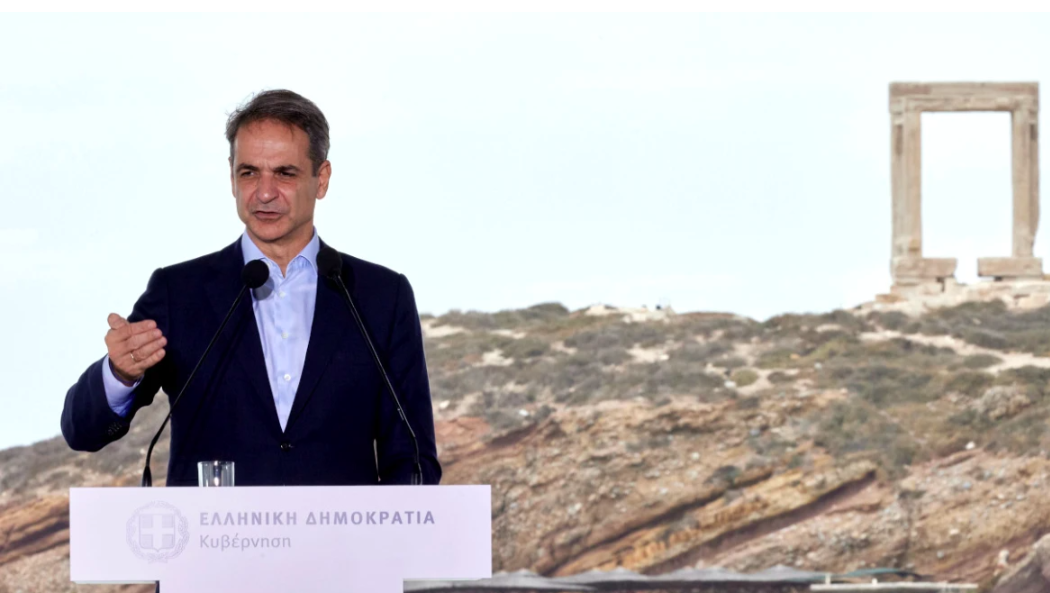Investments exceeding €5 billion in renewable energy sources, electricity interconnections, and water supply infrastructure for the islands, along with a reduction in electricity bills through the gradual elimination of charges for Public Utility Services, are the anticipated outcomes of the Island Decarbonization Fund’s operation. The agreement to establish the Fund was signed today in Naxos in the presence of Prime Minister Kyriakos Mitsotakis.
The fund comprises €1.6 billion in capital, which, through the leveraging of private resources, will finance investments exceeding €5 billion in three key sectors:
- Island Interconnections
- Electrical interconnections of North Aegean and Dodecanese islands by IPTO, and smaller islands (Kymi, Patmos, Kythnos, Amorgos) by HEDNO.
- Renewable Energy Projects and Energy Storage
- Projects by households and businesses, including photovoltaics, batteries, pumped hydro, offshore wind farms, water reservoirs for energy storage, and production. For the six largest non-interconnected islands (Rhodes, Kos, Kalymnos, Samos, Chios, and Lesvos), tenders for renewable energy projects with battery integration are scheduled for 2025.
- Infrastructure for Electric Vehicles and Port Electrification
- Charging stations for electric vehicles and electric power supply for large ships (cold ironing) docking at island ports.
Ministerial Remarks
Environment and Energy Minister Theodoros Skylakakis emphasized that addressing the climate crisis requires abundant and affordable energy, which the new fund aims to deliver. He highlighted Greece’s leadership in the green transition, noting the high penetration of renewables in the country’s system. Once the projects are complete, Greek islands will be among the few globally to achieve “green certification,” boosting their appeal as tourist destinations. He added that residents would see daily benefits, including lower electricity bills.
Deputy Minister Alexandra Sdoukou described the fund as a “mini Recovery Fund,” noting its exclusive focus on Greek islands. She emphasized the overall upgrade in quality of life for islanders and millions of visitors, projecting consumer savings of €2.2 billion for the Dodecanese and €1.6 billion for the North Aegean over 25 years, with interconnections expected to conclude by 2029.
European Commission Vice President Maroš Šefčovič estimated that revenue from the sale of emissions allowances (a key funding source for the Fund) could reach €2 billion. He underlined the importance of these projects for addressing water scarcity and urged Greece to submit proposals for projects to be included in the Fund soon.
European Investment Bank Vice President Giannis Tsakiris stated that the agreement demonstrates Europe’s and Greece’s commitment to the green transition and represents a milestone in Greece’s cooperation with the EIB, which has allocated €50 billion for over 400 projects nationwide.
Local Representatives’ Statements
South Aegean Regional Governor Giorgos Hatzimarkos commended the comprehensive plan and the prime minister’s political will to implement the largest infrastructure project network for islands. Naxos Mayor Dimitris Lianos highlighted the importance of balancing economic growth with environmental protection.
Ask me anything
Explore related questions





